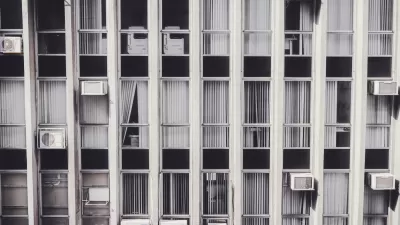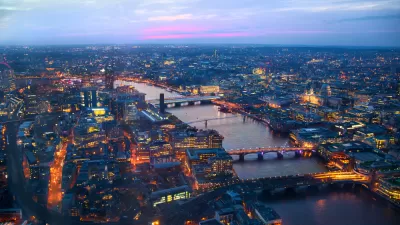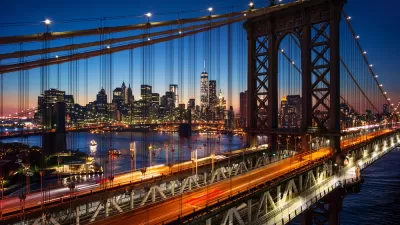Alex Steffen of WorldChanging proposes that globalization could soon change direction as transportation costs increase.
"(T)ransportation costs are not the only reasons why globalization as we know it might be in for some rapid evolution. Consider:"
"-Some of the economic advantages of globalization have come from companies gaining the ability to skirt labor and environmental laws by doing business in countries with high levels of political corruption (corruption they have often helped create). But now, transparency activism has blown the cover of secrecy off these practices; now it is easier than ever to cause enormous brand damage simply by revealing an unsavory backstory.
-Much of the logic of globalization assumes a one-way flow of materials, mined and grown in the poorest countries, manufactured into consumer goods in China, Brazil or Mexico, sold on the shelves of megastores in Europe or North America, then shipped away to the landfill. But as we move into zero waste and closed-loop systems (where there is no "away"), reverse logistics start to become a real concern. Producers become responsible for their products, meaning that running their current supply chains in reverse doubles (at least) their already mounting transportation costs. This alone could drive more local manufacturing.
-Globalization suffers from some big disruptive vulnerabilities. An extreme act of terror, say a dirty bomb in a shipping container, could easily bring the whole system screeching to a halt. Ditto bird flu. Same with mass migrations triggered by environmental degradation and climate change in already desperately poor countries. Heck, even the right kind of invasive species scare could put a hiccup in the system, but some of these could stop trade altogether for quite some time."
FULL STORY: Could Globalization Be Going In Reverse?

Planetizen Federal Action Tracker
A weekly monitor of how Trump’s orders and actions are impacting planners and planning in America.

San Francisco's School District Spent $105M To Build Affordable Housing for Teachers — And That's Just the Beginning
SFUSD joins a growing list of school districts using their land holdings to address housing affordability challenges faced by their own employees.

The Tiny, Adorable $7,000 Car Turning Japan Onto EVs
The single seat Mibot charges from a regular plug as quickly as an iPad, and is about half the price of an average EV.

San Diego Votes to Rein in “Towering” ADUs
City council voted to limit the number of units in accessory buildings to six — after confronting backyard developments of up to 100 units behind a single family home.

Texas Legislature’s Surprising Pro-Housing Swing
Smaller homes on smaller lots, office to apartment conversions, and 40% less say for NIMBYs, vote state lawmakers.

Even Edmonton Wants Single Staircase Buildings
Canada's second most affordable major city joins those angling to nix the requirement for two staircases in multi-family buildings.
Urban Design for Planners 1: Software Tools
This six-course series explores essential urban design concepts using open source software and equips planners with the tools they need to participate fully in the urban design process.
Planning for Universal Design
Learn the tools for implementing Universal Design in planning regulations.
Borough of Carlisle
Smith Gee Studio
City of Camden Redevelopment Agency
City of Astoria
Transportation Research & Education Center (TREC) at Portland State University
City of Camden Redevelopment Agency
Municipality of Princeton (NJ)





























